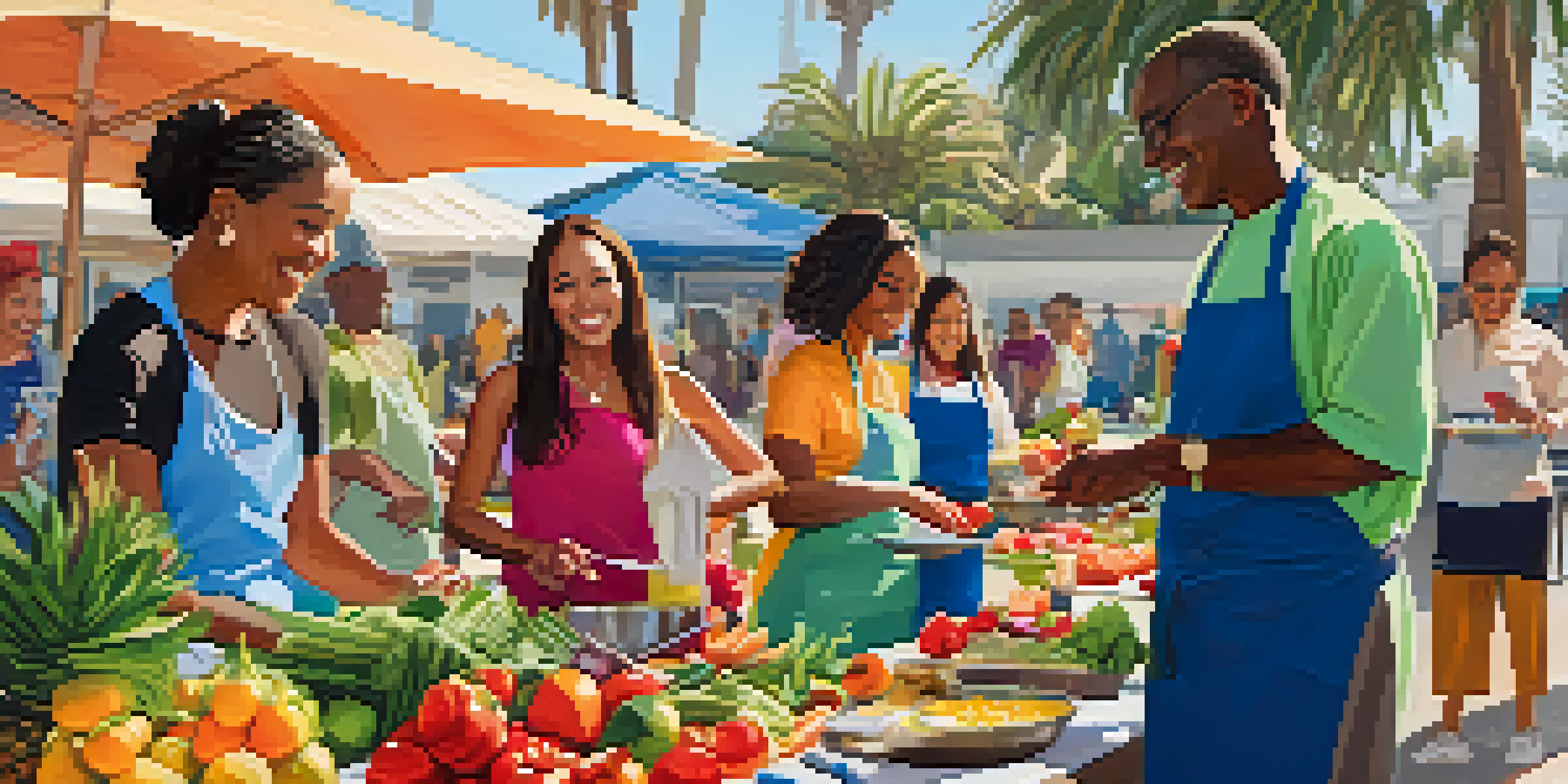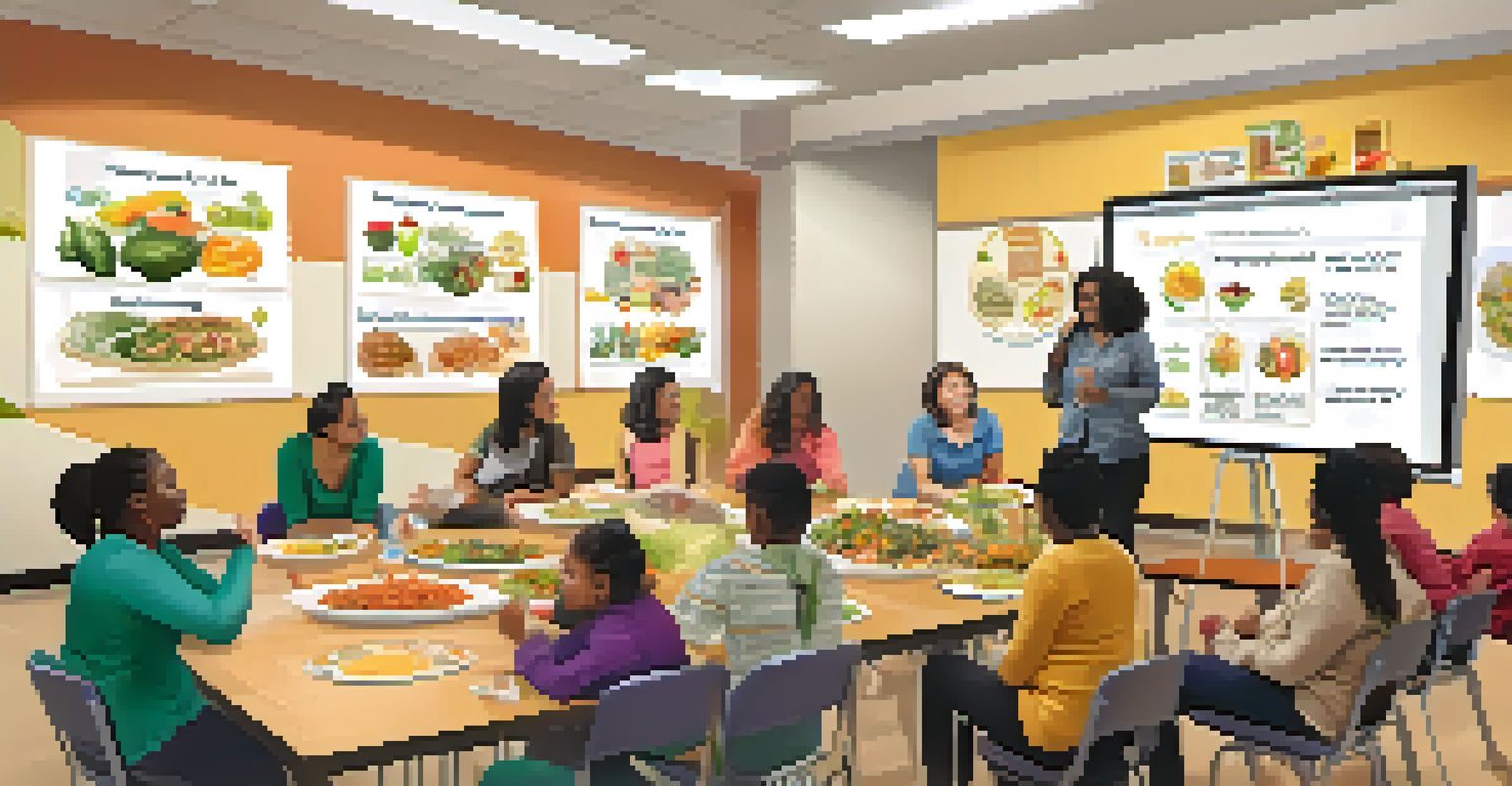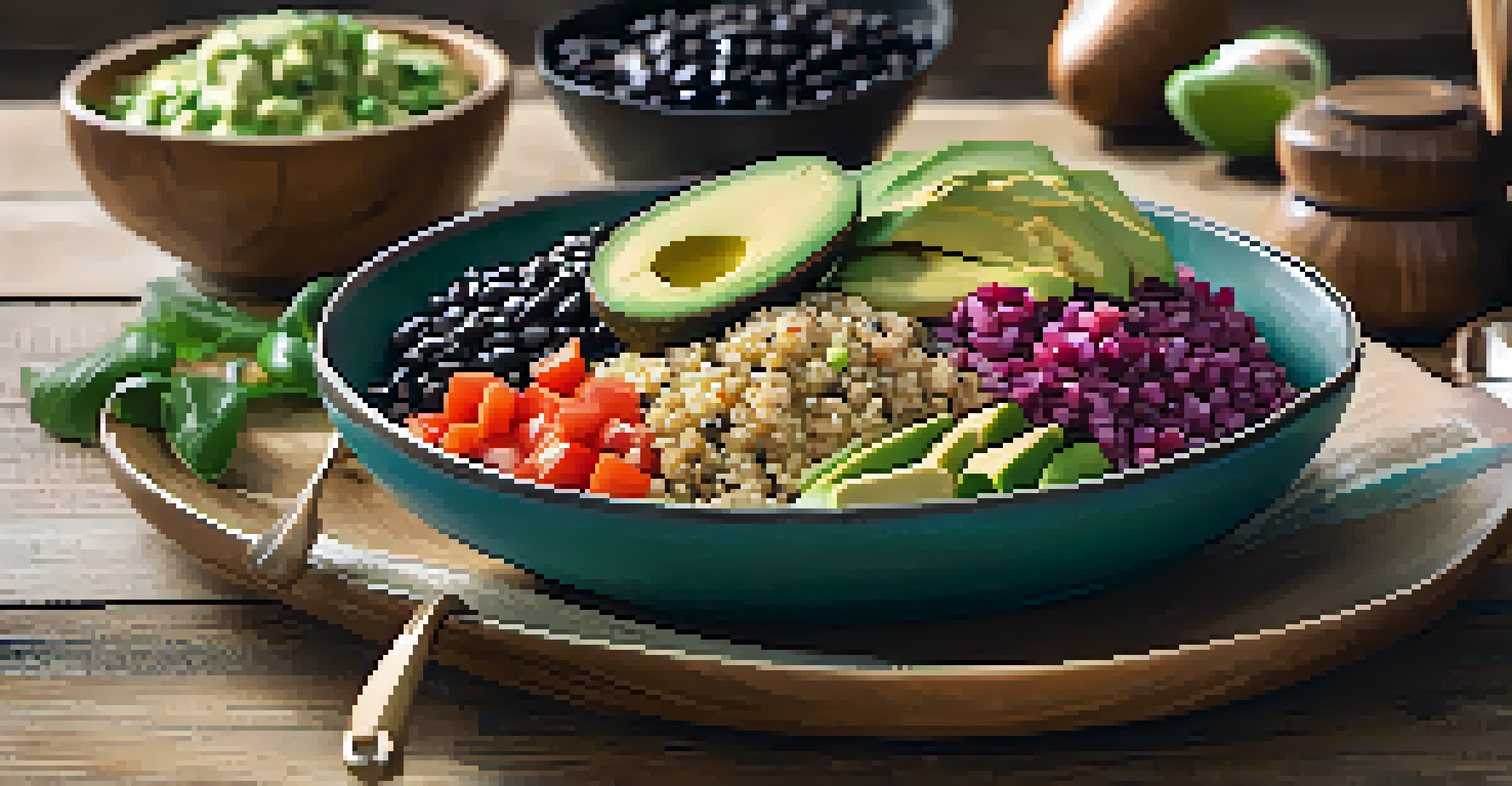Nutrition Workshops: Educating Santa Monica's Diverse Community

The Importance of Nutrition Education in Diverse Communities
Nutrition education plays a crucial role in promoting health and wellness, especially in diverse communities like Santa Monica. With various cultural backgrounds, dietary needs, and food preferences, understanding nutrition can significantly impact overall well-being. Workshops provide a platform for sharing knowledge and empowering individuals to make informed food choices tailored to their lifestyles.
Let food be thy medicine and medicine be thy food.
Moreover, these educational sessions help bridge the gap between different cultural practices and modern nutritional science. By incorporating local traditions and familiar ingredients, participants can learn to create healthier meals without sacrificing flavor or cultural significance. This approach not only respects individual backgrounds but also fosters a sense of belonging within the community.
Ultimately, the goal is to equip residents with the tools they need to take charge of their health. Through interactive discussions and hands-on activities, attendees can engage with the material and feel more confident in applying what they learn in their everyday lives. This empowerment is essential for promoting long-term health changes across Santa Monica.
A Look at Santa Monica's Diverse Population
Santa Monica is a melting pot of cultures, with residents hailing from various ethnic backgrounds, each with unique dietary habits and preferences. This diversity presents both challenges and opportunities for nutrition education initiatives. Understanding the specific needs of different groups is vital for creating effective workshops that resonate with participants.

For instance, a workshop tailored for families from Latin American backgrounds might focus on incorporating traditional foods into a balanced diet. On the other hand, sessions aimed at the local vegan community could explore plant-based nutrition and cooking techniques. By recognizing and valuing these differences, nutrition workshops can foster inclusivity and engagement.
Nutrition Education Empowers Communities
Workshops provide knowledge and tools for diverse communities to make informed food choices and improve overall health.
Additionally, addressing language barriers and cultural nuances is crucial in these educational settings. Providing resources in multiple languages and ensuring facilitators are culturally competent can enhance the learning experience for everyone involved. This inclusivity not only benefits individuals but strengthens the entire community.
Key Topics Covered in Nutrition Workshops
Nutrition workshops in Santa Monica typically cover a wide range of topics to cater to the community's diverse needs. Common themes include meal planning, understanding food labels, and the importance of balanced diets. These subjects are crucial for helping participants navigate the often overwhelming world of nutrition.
The food you eat can be either the safest and most powerful form of medicine or the slowest form of poison.
Another popular focus is cooking demonstrations, where attendees can learn how to prepare healthy meals using accessible ingredients. This hands-on approach not only makes learning enjoyable but also empowers individuals to recreate these meals at home. By seeing how simple it can be to cook nutritious food, participants feel more inclined to make healthier choices.
Workshops may also address specific health concerns such as diabetes management or heart health, offering tailored advice that speaks directly to participants' needs. By providing practical strategies and resources, these sessions help demystify nutrition and inspire lasting change in participants' lives.
Engaging the Community: Interactive Learning Experiences
One of the standout features of nutrition workshops is their interactive nature. Instead of a traditional lecture format, these sessions often involve group discussions, cooking activities, and even taste tests. This hands-on involvement not only makes learning more enjoyable but also encourages participants to share their experiences and insights.
For example, attendees might break into small groups to create meal plans based on their dietary preferences and cultural backgrounds. This collaborative approach fosters a sense of community and support, as participants learn from one another’s experiences. It also allows for the exchange of ideas and tips that can enhance everyone's journey toward better health.
Inclusivity in Nutrition Workshops
Tailoring sessions to cultural backgrounds and addressing language barriers fosters engagement and a sense of community.
Furthermore, incorporating local chefs or nutritionists into workshops can elevate the experience. Their expertise can provide valuable insights, tips, and techniques that participants might not have encountered otherwise. By engaging with professionals, community members can gain a deeper understanding of nutrition while also building connections within Santa Monica.
Building Partnerships for Greater Impact
Successful nutrition workshops often rely on collaboration between various organizations, such as local health departments, schools, and community centers. By coming together, these partners can pool resources, knowledge, and networks to create more impactful programs. This collaboration ensures that workshops reach a broader audience and cater to the specific needs of the community.
For example, partnering with local farmers' markets can provide fresh, seasonal produce for cooking demonstrations. This not only supports local agriculture but also emphasizes the importance of eating fresh, whole foods. Additionally, schools can play a pivotal role in reaching families, helping to establish healthy habits from a young age.
These partnerships foster a sense of ownership and investment in community health. When multiple organizations work together toward a common goal, the impact can be far-reaching, leading to a healthier, more informed Santa Monica. This united effort is essential for addressing the diverse nutritional needs of the community.
Success Stories from Participants
Hearing success stories from participants can be incredibly motivating for both current and prospective attendees of nutrition workshops. Many individuals share how they’ve transformed their eating habits and overall health after attending these sessions. These personal anecdotes highlight the tangible benefits of nutrition education and inspire others to take the plunge.
For instance, one participant may recount how learning to read food labels helped her make healthier choices for her family. Another might share his journey of lowering cholesterol through dietary changes introduced in workshops. These real-life examples serve as powerful testimonials to the effectiveness of the programs.
Collaboration Enhances Program Impact
Partnerships between organizations allow for resource sharing, reaching wider audiences, and addressing specific community needs.
Such stories not only celebrate individual achievements but also reinforce the sense of community within Santa Monica. When residents see their neighbors thriving, it fosters a supportive environment that encourages collective growth and healthier lifestyles. Sharing these successes is a vital part of the workshops, creating a ripple effect of inspiration and motivation.
Looking Ahead: The Future of Nutrition Workshops
As Santa Monica continues to evolve, so too will its nutrition workshops. Future programs will likely incorporate emerging trends in nutrition science, technology, and community needs. For example, workshops may increasingly focus on sustainable eating practices, highlighting the importance of environmental health alongside personal well-being.
Moreover, integrating digital tools and resources can make workshops more accessible. Virtual sessions, online resources, and social media engagement can reach a broader audience, helping those unable to attend in person. This adaptability ensures that nutrition education remains relevant and accessible to everyone in the community.

Ultimately, the future of nutrition workshops in Santa Monica is bright. With ongoing community support, partnerships, and a commitment to inclusivity, these programs will continue to empower residents to make healthier choices. By investing in education, Santa Monica is nurturing a healthier, more informed population, one workshop at a time.